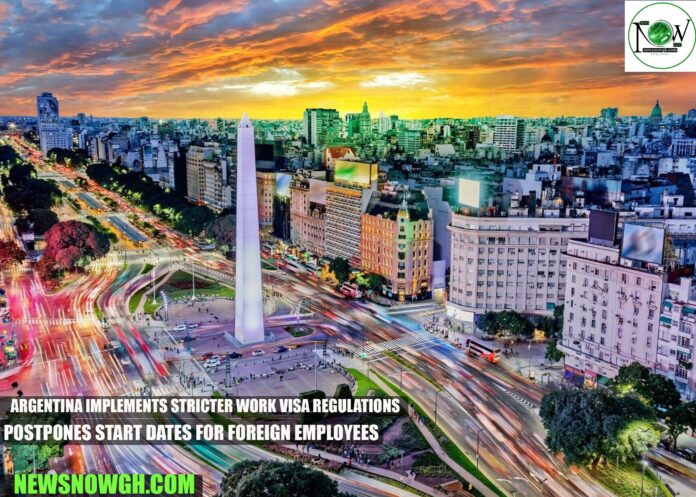Argentina Implements Stricter Work Visa Regulations, Postpones Start Dates for Foreign Employees
Argentina is tightening its work visa regulations, impacting how quickly foreign workers can begin their jobs. The National Immigration Directorate has recently changed its procedures, making it essential for foreign employees to adjust their expectations and planning.
Provisional Certificates No Longer Issued Automatically
Previously, foreign workers in Argentina could receive a provisional residence certificate, known as a precaria, immediately upon booking an appointment. This certificate permitted them to start working while they awaited their in-person filing. However, this is no longer the case.
Now, applicants must attend their scheduled appointment and submit a complete application before receiving their precaria. This change significantly alters how quickly foreign nationals can begin working.
Impact on Foreign Workers and Employers
The new rules mean that foreign workers cannot legally start their jobs right after booking their appointments. They must wait for the precaria to be granted, which occurs only after the appointment. This delay can extend the onboarding process by seven to ten additional days for regular applications. Fast-track cases may also see delays of one to two days.
For employers, this requires adjusting hiring schedules and project timelines to align with the extended processing times. Companies will need to plan to manage these changes effectively.
How to Prepare
Foreign nationals seeking work permits or residence visas in Argentina should take the following steps:
- Schedule RADEX appointments as early as possible to avoid delays.
- Ensure all required documents are complete before the appointment.
- Coordinate start dates with employers to account for the new waiting period.
Employers should also review their onboarding policies and set realistic expectations for foreign hires to adapt to this new process.
What Employers Should Do
Businesses that depend on foreign talent in Argentina should prepare carefully for these changes. It’s advisable to:
- Build in an extra week or more for the onboarding process.
- Ensure all documentation is complete before the in-person appointment to prevent further delays.
- Keep new hires informed so they do not mistakenly begin work before receiving authorization.
Final Thoughts
Argentina’s regulatory shift aims to enhance administrative control over immigration processes. However, this change introduces additional challenges for employers and expatriates accustomed to a smoother onboarding experience.
By planning and making necessary adjustments, companies can ensure that projects and staffing remain on track, even in the face of these new requirements.
Follow NewsNowGh to stay updated on the latest information regarding work permits, visas, and visa-sponsored employment.


